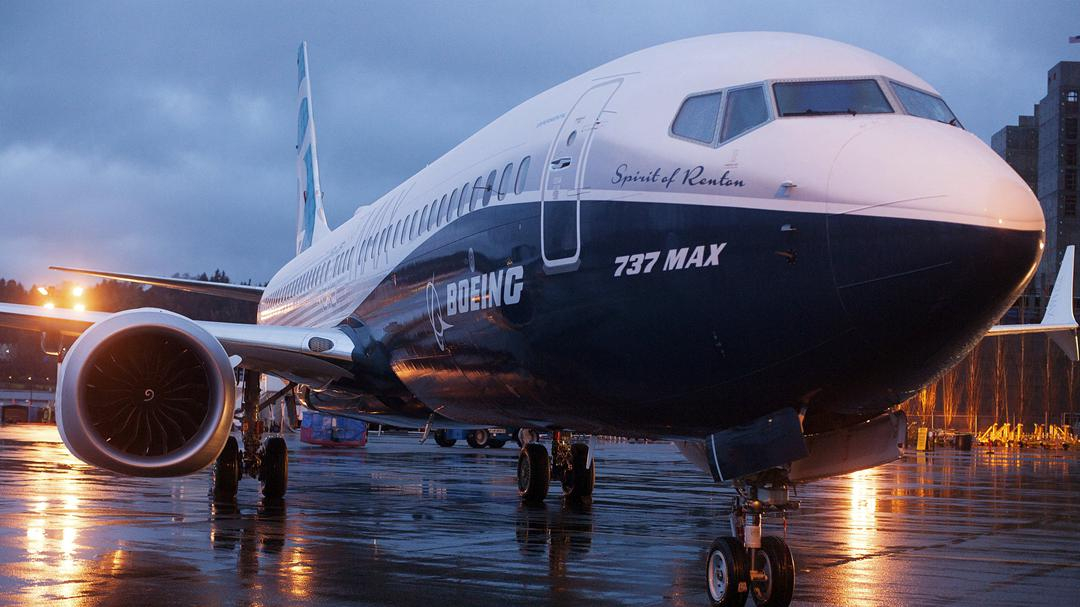
Boeing 737 Max jet. (Photo: CGTN)
WASHINGTON, March 27 (Xinhua) -- The US Federal Aviation Administration (FAA) on Wednesday vowed to revamp its air safety oversight after two deadly crashes involving Boeing 737 Max jets in less than five months pointed to possible lapses in the aircraft approval process.
At a Senate Commerce Committee hearing on airline safety, Calvin Scovel, the US Transportation Department's inspector general, said that the FAA will significantly change its oversight approach by July.
Scovel offered few details about the overhaul, but suggested that the new process would identify the "company self-audit processes" and develop new evaluation criteria.
Daniel Elwell, acting administrator of the FAA, agreed that the agency's oversight approach "needs to evolve," but he also defended FAA's controversial program called Organization Designation Authorization (ODA) that allowed aircraft manufacturers to have their own employees conduct safety inspections.
Elwell argued the ODA was "not self-certification," since FAA was "directly involved" in the review of Boeing 737 Max's anti-stall software. The failure of the anti-stall system was believed to have led to Indonesia's Lion Air accident in October and is suspected to have also caused the Ethiopian Airlines crash this month.
Senator Richard Blumenthal called safety regulation outsourcing "a flawed system" that put the "fox in charge of the hen house" and Senator Ted Cruz said that "close relationship between industry and regulators" erodes the public confidence.
Scovel said FAA's work on the ODA program had "management weaknesses," in a statement presented to the Senate Subcommittee on Aviation and Space hearing.
US Transportation Secretary Elaine Chao asked Scovel last week to have an investigation into the FAA's certification of Boeing 737 Max and created an external expert panel on Monday to review FAA's certification procedures.
Scovel said that among other problems, "not all FAA offices consulted FAA's database to pre-screen performance histories of prospective ODA personnel."
But Elwell said FAA would have to hire 10,000 more workers and spend another 1.8 billion US dollars to spare the ODA program.
Elwell also said the certification process of Boeing 737 Max was "detailed and thorough," but "time yields more data to be applied for continued analysis and improvement" for a passenger jet with a fleet of more than 380 in operation globally.
Also, Elwell acknowledged at the hearing that the pilots were not given specific instructions on the Boeing 737 Max anti-stall software, but he evaded to clarify FAA's attitude to the fact that Boeing made some safety features on the aircraft "optional" instead of "mandatory."
The subcommittee will hold a second hearing on aviation safety in the near future to hear from industry stakeholders that would include Boeing.


